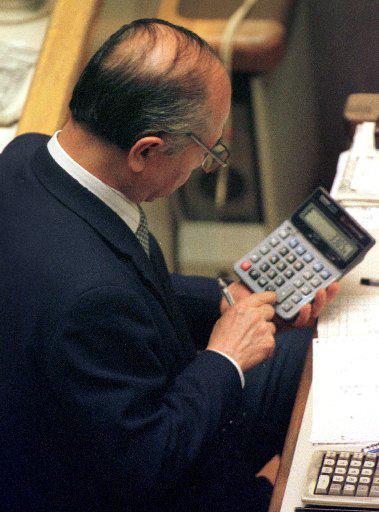"Numbers like you have never known them, forbidden numbers, illegal numbers! A number greater than the Universe, the magical number that man cannot comprehend. The infinite (which is not a number). Doesn't curiosity itch you?"
This is how a mathematician and a historian try to convince us that numbers are unusual, fun, and mysterious. Does it work? For most, probably not. Mathematics, numbers... oh, math. For many, the default school torment. "Theorem of..." and attention is already lost. "Logarithm—" Look, a fly! It's inevitable: math, numbers, are the natural enemy of the distracted schoolchild. How many failing grades are now hidden at the bottom of the desks?
But here come Tommaso Maccacaro, astrophysicist, and Claudio M. Tartari, historian, ready to change our minds. Together they sign Unusual Numbers (Siruela), a review of the history that accompanies numbers. But... why? "Because the history of numbers helps us understand our evolution," they argue. Alright, let's give them the benefit of the doubt.
It turns out they have what it takes to convince. Although we think of numbers as cold, unchangeable entities confined to chalkboards, the truth is that they have also been - and still are - victims of quirks, superstitions, and human passions. Let's start with something light; fun, even. Even numbers have their share of black legend. The number 13, for example. The quintessential marginalized number, with its sign of malevolence and threatening danger: hotels skipping from the 12th floor to the 14th, airlines eliminating it from their seats, weddings avoiding falling on Friday the 13th, just in case. But Maccacaro and Tartari are not superstitious: in fact, they believe that "no number deserves a bad reputation."
And in their brief but panoramic look at the past, they show us that the number 13 is not universally hated. In Japan, for example, it is the number 4 that becomes a taboo number. The reason? It is pronounced the same as the word "death" in Japanese. And the most beloved number? 7, of course. Because if there are cursed numbers, there are also pampered ones, adored, turned into talismans. The central idea: our relationship with numbers is not purely logical. It is emotional. It is marked by fear, desire, tradition, and collective imagination. Everything has contributed to the construction of the history of numbers.
What is most curious is that this history, as the authors argue, "is still being written." Numbers, although they seem like fixed entities, evolve. They were not all there from the beginning. "At first, there were integers and rationals, then came irrationals, complex numbers, imaginaries...," they explain. Numbers, after all, are tools. They are created to solve problems. And when problems change, mathematics also changes. So yes, there are "new mathematics," a completely different way of understanding numbers. And it's not just that humans invent new ways of counting or calculating: we also invent new ways of thinking about the numerical.
At this point, they have already dismantled superstition, eternal logic, and even the idea that everything in mathematics has already been discovered. What's left? Aliens. And it's not a dramatic device: it's one of the juiciest ideas they propose. Let's say extraterrestrials arrived on Earth right now. How would we communicate with them? No, it wouldn't be with strange symbols or guttural sounds. According to the authors, mathematics - and therefore, numbers - would be the most suitable language. "On our planet, there are thousands of languages and many alphabets, but mathematics has formulated a universal code at a planetary level," they explain. And they continue: "Numbers can define a common basis for communication and overcome any difference." That's what they call beauty. Because ultimately, one of their theses is that mathematics are not only useful, they are also beautiful. "Everything in mathematics is elegantly consistent," they argue. Nothing is obvious, but everything fits.
And then there is the infinite number. The one that never ends. The one that, they say, contains in its infinite decimal digits, all the harmonies, poems, or paintings of human history. But the idea is magnetic: that everything we have created - and everything we could create - is already, in some way, contained in that endless sequence.
